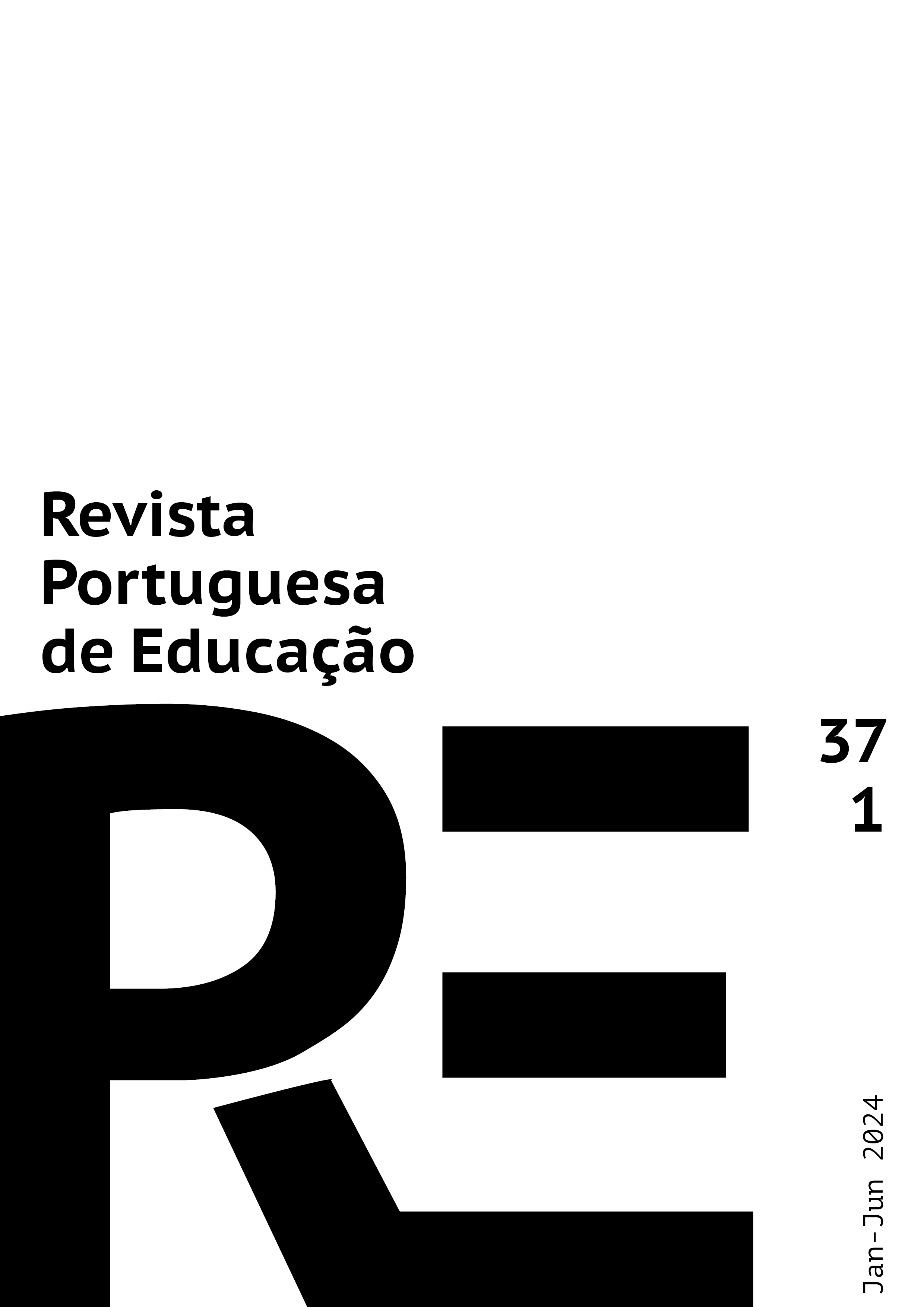Literature in teacher training and catharsis as a preparatory foundation for the classroom
DOI:
https://doi.org/10.21814/rpe.27828Keywords:
Literature and teaching, Catharsis, Historical-critical pedagogy, Teacher training, Literature and societyAbstract
The article proposes to justify the need for catharsis to take place with the teacher, since, before becoming a teacher, he occupies the space of a student at the University. The research does not refer to catharsis as a single moment, on the contrary, it defends catharsis as a process that must be constant in studies, readings and research that permeate teacher training during undergraduate studies, and other knowledge construction processes that are part of teacher improvement. The approach, based on the theoretical assumptions of historical-critical pedagogy, suggests that literature, in teacher training, can contribute to promoting the cathartic process, preparing the subject for the systematization and mediation of knowledge, and its humanization; reinforces that access to art and literature is a right for everyone and not for a few, and defends the use of methods of analysing literary works that are not restricted to the linguistic aspect. Supported by the texts of Newton Duarte, Antonio Candido and Demerval Saviani, the research suggests methods that include a sociological, historical, cultural, philosophical and artistic approach, which would allow an understanding and apprehension of literary work of a multidisciplinary nature, intertwining knowledge in order to eliminate the separation of contents into “little boxes”. Teachers who do not go through cathartic experiences during their formative studies do not have the elements to guide other subjects through these experiences – future students. This being said, teacher training from this perspective makes it possible to offer instruments for the transformation of subjects involved in the educational process, preparing them to implement an egalitarian society.
Downloads
References
Barthes, R. (1978). Aula: Aula inaugural da cadeira de semiologia literária do Colégio de França, pronunciada dia 7 de janeiro de 1977 (L. Perrone Moisés, Trad.). Editora Cultrix.
Candido, A. (2000). Literatura e sociedade. (8.ª Ed.). Publifolha.
Candido, A. (2011). O direito à literatura. Vários escritos. (5.ª Ed., pp. 171-193). Ouro Sobre Azul.
Ceribeli, M. C. B. (2019). O Guarani: Relações intersemióticas entre a ópera de Carlos Gomes e o texto literário de José de Alencar [Dissertação de Mestrado publicada]. Universidade Federal do Espírito Santo. https://sappg.ufes.br/tese_drupal//tese_13470_Disserta%E7%E3o%20inteira%20MARIA%20CLAUDIA%20BACHION%20CERIBELI%20-%20%20vers%E3o%20final.pdf
Compagnon, A. (2009). Literatura para quê? (L. Taddei Brandini, Trad.). Editora UFMG.
Costa, L. Q. (2017). O lema “aprender a aprender” no ensino de literatura: Precisas implicações no processo de formação humana. Revista HISTEDBR On-line, 17(3), 940-967. https://doi.org/10.20396/rho.v17i3.8645880
Dalvi, M. A. (2018). A quem interessa a desqualificação da educação literária?. In M. A. Dalvi, C. G. Giroto, T. B. Scaramussa, & A. Valiengo (Orgs.), Literatura e educação: Gêneros, políticas e propostas. (pp. 20-32). Brasil Multicultural.
Dalvi, M. A. (2019). Um clássico sobre educação literária: “O direito à literatura”, de Antonio Candido. Via Atlântica, 20(1), 221-234. https://doi.org/10.11606/va.v0i35.154687
Della Fonte, S. S., & Marsiglia, A. C. G. (2016). A educação escolar e os clássicos literários: Considerações a partir da pedagogia histórico-crítica e da psicologia histórico-cultural. Revista Brasileira de Alfabetização, 1(4), 19-34. https://revistaabalf.com.br/index.html/index.php/rabalf/article/view/142
Duarte, N. (2019). A catarse na didática da pedagogia histórico-crítica. Pro-Posições, 30, e20170035. http://dx.doi.org/10.1590/1980-6248-2017-0035
Ginzburg, J. (2012). O ensino de literatura como fantasmagoria. Revista da Anpoll, 1(33), 209-222. https://doi.org/10.18309/anp.v1i33.637
Lavoura, T. N., & Marsiglia A. C. (2015). A pedagogia histórico-crítica e a defesa da transmissão do saber elaborado: Apontamentos acerca do método pedagógico. Perspectiva, 33(1), 345-376. https://doi.org/10.5007/2175-795X.2014v33n1p345
Mazzeu. F. J. (1998). Uma proposta metodológica para a formação continuada de professores na perspectiva histórico-social. Cadernos CEDES, 19(44), 59-72. https://doi.org/10.1590/S0101-32621998000100006
Saviani, D. (1999). Escola e democracia. (32.ª Ed.). Autores Associados.
Saviani, D. (2013). Pedagogia histórico-crítica: Primeiras aproximações. (11.ª Ed.). Autores Associados.
Souza, R. A. (2007). Teoria da literatura. (10.ª Ed.). Ática.
Downloads
Published
How to Cite
Issue
Section
License
Copyright (c) 2024 Maria Cláudia Bachion Ceribeli

This work is licensed under a Creative Commons Attribution-ShareAlike 4.0 International License.
1. The authors preserve their authorship and grant the Portuguese Journal of Education the right to the first publication. The work is licensed under Creative Commons Attribution License that allows sharing the work with the acknowledgment of initial authorship and publication in this Journal.
2. The authors have the right to take additional contracts separately, for non-exclusive distribution of the published version of their work (e.g. to deposit in an institutional repository or as a book chapter), acknowledging the initial authorship and publication in this Journal.
3. The authors have the permission and are stimulated to post their work online (e.g. in an institutional repository or on their personal website). They can do this at any phase of the editorial process, as it may generate productive changes, as well as increase impact and article citation (see The Open Citation Project).
The work is licensed under Attribution-ShareAlike 4.0 International (CC BY-SA 4.0)



















